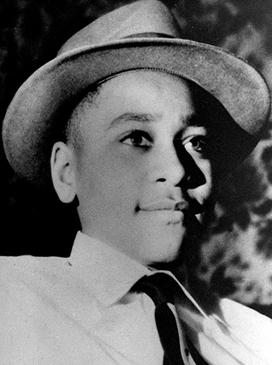
Emmett Till is a name that went down in history as a key example of prejudice in the 20th century South. Many learn of him and his murder in their high school history classes, but recently, there’s been a development: Till’s family wants his case to be reopened.
In 1955, Till was a 14-year-old Chicago native when he went down to Money, Miss., to visit his family. He was staying at his great uncle’s, Mose Wright, house. Though his mother warned him about racism in the South, Till was just a kid who wanted to have fun. While around a country store, Till told his cousins that his girlfriend back home was white, so they dared him to ask Carolyn Bryant, the woman working the counter, on a date. Though no witnesses were present, Bryant later said that Till whistled at her, made lewd gestures and grabbed her.
A few days later, Rob Bryant, Carolyn’s husband, returned from a business trip, and Carolyn told him her account of the incident. He was extremely enraged and decided to take matters into his own hands. With his half brother, J.W. Milam, he went to Wright’s house and demanded to take Till. Regardless of Wright’s pleas, Rob Bryant and Milam forced Till into their car. Three days later, Till’s body was found in the Tallahatchie River. He had been brutully murdered to the point that Wright could only identifiy him by an initial ring.
Initially, local authorities wanted to immediately bury him. However, Mamie Bradley, Till’s mother, requested for the body to be sent back to Chicago. But Bradley’s decision to hold an open-casket funeral for her son was what truly shed light upon the issue. Jet, an African-American weekly magazine, published a picture of the disfigured body from the funeral. It was then picked up by multiple mainstream media outlets.
Unfortunately, Till did not receive justice for his death. Rob Bryant and Milam went on trial a few weeks after Till’s death. However, the entire jury was white, and the trial took place in Sumner, Miss. Also, Wright was the only witness who confidently stated that Bryant and Milam were Till’s killers. With all of these cards stacked against him, it was no surprise that Till’s killers were free men after less than an hour of jury debate time.
The trial’s outcome sparked outrage throughout the country. The public also argued that Rob Bryant and Milam should have been charged with kidnapping. However, things were quite different in the small town of Money, Miss. After the trial, both Rob and Milam freely talked about the murder around town as they knew locals supported them. But they went too far and confessed to murdering Till for Look magazine in order to receive $4,000 in compensation. Following the interview, both men were blacklisted in society’s view.
Milam died of bone cancer in 1981, and Rob passed away in 1994 with cancer. However, one person in this trio was left: Carolyn Bryant. In 2017, she admitted that Till had never touched, threatened or verbally harassed her to Tim Tyson, the author of “The Blood of Emmett Till”.
Following her confession, federal officials reopened the case in 2018. Unfortunately, the justice department was not able to obtain any recordings or other documentation of Carolyn Bryant’s confession from her encounter with Tyson. They were forced to close the case in 2021.
Following the closure, the descendents of Emmett Till have urged to reopen the case once again. English teacher Lynne Lundberg expressed how she believes a reopened case could describe current views on past issues. “Whenever we call attention to those wrongs, we say it’s still wrong,” she said. “It’s not over. It should be dealt with. We as a vast community, as a nation, need to deal with the wrongs of the past.”
Especially with the divided society that is present today, Lundberg’s point of staying together as a whole on this issue is so important. As Lundberg has said, it is the responsibility of the current generation to acknowledge the harmful effects of historical racism.
Junior Aarya Joshi has been closely following the case since its reopening in 2018. “I think this case serves as a catalyst to reopen civil rights cases that were probably overlooked,“ she said. Joshi brings up a great point of how reopening this case could be the starting point for a movement. Revising other cases of which the verdict was decided under a prejudiced society could help current society move forward.
With Carolyn currently being 88 years old, some are wondering if it is appropriate to face her with jail time. Lundberg believes that a different approach should be taken so that Till’s family members can receive closure. “I don’t know whether there is any good to be held in something like jail time, but I think to ask her to admit her wrongs and ask her to make a statement to his family in order to own what you did,” she said. “You need to face the people you harmed.”
Though Till was murdered over 65 years ago, his legacy still lives through his descendents who are still greiving of his death and his lack of justice. Emmett Till may not have received justice immediately after his death, but societal norms were much different at that point. With a fair court and 67 years of progressive mainstream beliefs, Till’s chance at justice may be much better if tried again.









Mattie Moats • Apr 7, 2022 at 12:55 pm
I learned about htis case from a young age and have always been interested in it. I remember finding out that Carolyn Bryant lied and I was in complete disbelief. This article does a great job of captivating the importance of his case.
Saddler • Apr 1, 2022 at 9:28 pm
I initially learned about Emmett Till from my dad when I was 10; I always imagined it was so long ago that nothing like this could ever happen again and that it was so far in the past that nothing could be done for him and his family or to the people that murdered him. It brings me happiness that this has been reopened so Emmitts’ family can finally have peace over his death.